INVERTERS, OPTIMIZERS & CHARGERS
AC / DC
Solar inverters are essential components of solar PV systems, responsible for converting the direct current (DC) electricity generated by solar panels into alternating current (AC) electricity suitable for use in homes, businesses, and the electrical grid.
Each type of solar inverter has its advantages and limitations, and the choice depends on factors such as system size, installation environment, shading conditions, budget, and specific project requirements.
Solar Tech Solutions would be more than happy to go through the options with you to determine the most suitable inverter technology for your solar PV system requirements.
Get In Touch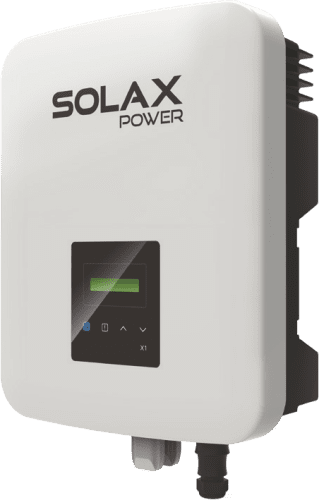
String Inverters
String inverters are the most common type of solar inverters used in residential and commercial solar PV installations. They are typically installed in a centralized location and connected to multiple solar panels arranged in series (or strings).
String inverters are cost-effective and straightforward to install but may experience performance degradation if one panel in the string is shaded or underperforming.
Efficiency
Generally have high efficiency but may experience performance degradation in shaded conditions or if one panel in the string underperforms.
Cost
String inverters typically have lower upfront costs compared to microinverters or power optimizers, making them cost-effective for larger solar PV systems.
Reliability & Durability
String Inverters are known for reliability but may experience performance degradation over time, especially if subjected to extreme temperatures or environmental conditions.
Monitoring
String Inverters offer basic monitoring features, such as data logging and fault detection, but may lack detailed panel-level insights.
Flexibility & Compatibility
String Inverters are compatible with a wide range of solar PV installations and panel configurations, offering flexibility in system design and scalability.
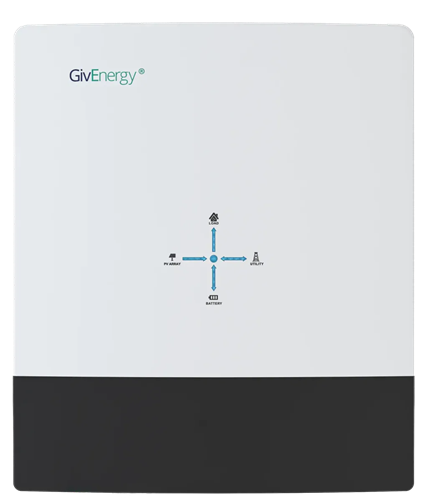
Hybrid Inverters
Hybrid inverters, also known as multi-mode inverters, are capable of managing both solar PV and battery storage systems. They enable seamless integration of solar energy generation, DC-coupled battery storage, and grid power, allowing for increased energy independence and flexibility.
Hybrid inverters are ideal for off-grid or hybrid grid-tied systems, where users want to maximize self-consumption of solar energy, by way of solar battery storage, and have the possibility of backup power during grid outages.
Efficiency
Hybrid Inverters offer high efficiency for both solar energy conversion and battery charging/discharging, maximizing overall system efficiency.
Cost
Hybrid Inverters have higher initial costs due to added functionality for battery storage integration, but provide value by enabling the addition of solar battery storage to give energy independence and backup power.
Reliability & Durability
Hybrid Inverters offer robust performance and durability, designed to withstand the rigors of solar-plus-storage applications and provide long-term reliability.
Monitoring
Whilst functionalities may differ between manufacturers, generally speaking, hybrid Inverters provide more comprehensive monitoring and control capabilities for both solar PV and battery storage systems, including remote monitoring and system integration.
Flexibility & Compatibility
Hybrid Inverters are designed for seamless integration with both solar PV and battery storage systems, providing flexibility in system design and energy management strategies.
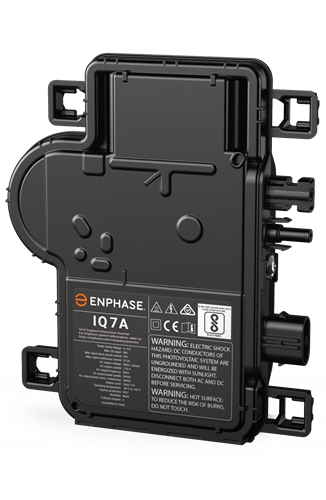
Micro-Inverters
Microinverters are installed on each individual solar panel, converting DC electricity into AC electricity at the panel level. They offer advantages such as panel-level monitoring, increased energy production in shaded conditions, and improved system reliability.
Microinverters can be more expensive than string inverters on a per-panel basis but may provide better overall system performance, especially in complex or partially shaded installations.
Efficiency
Micro-inverters provide panel-level optimization and high efficiency, even in shaded conditions, by converting DC to AC power at each individual solar panel. However, when combined with a battery storage solution, efficiency may drop as the AC power will need to be converted back into DC power in order to charge the battery.
Cost
Micro-inverters tend to be more expensive on a per-panel basis but offer higher performance, reliability, and flexibility, particularly in complex installations or shaded environments.
Reliability & Durability
Micro-inverters typically have long warranties and high reliability, as each unit operates independently, reducing the impact of failures on overall system performance.
Monitoring
Micro-inverters offer advanced monitoring platforms with panel-level data and diagnostics, enabling precise performance tracking and troubleshooting.
Flexibility & Compatibility
Micro-inverters are compatible with various PV module types and configurations and are suitable for complex installations and environments with shading or space constraints. Micro-inverter based system can also be easily expanded. However, if solar battery storage is required, then an additional AC-coupled inverter must be used for battery charging.
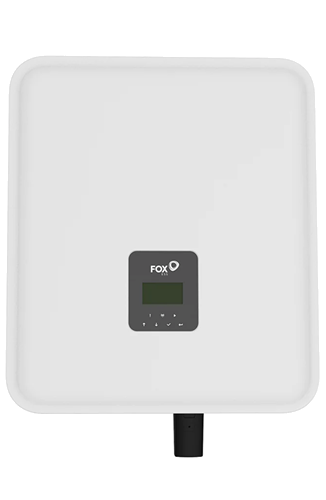
Battery Inverters / Chargers
AC-coupled battery inverters, or battery chargers, are specifically designed to manage the charging and discharging of battery storage systems. Battery chargers control the flow of electricity between the batteries, solar panels, and the electrical grid, optimizing energy usage and ensuring the safe operation of the battery system.
Battery inverters are perfect when retrofitting batteries into a solar PV system that does not already have a hybrid inverter, where users want to store excess solar energy for later use or for backup power.
Efficiency
AC-coupled inverters / battery chargers offer good efficiency in managing charging and discharging of battery storage systems, ensuring minimal energy loss when converting AC power to DC to charge the battery.
Cost
Generally speaking, purchasing an all-in-one hybrid inverter would cost less than purchasing a string inverter and a battery charger separately.
Reliability & Durability
Battery Inverters are designed for durability and reliability in managing battery charging and discharging cycles; robust construction and advanced thermal management systems ensure long-term performance.
Monitoring
Battery Inverters generally include monitoring features for battery status, charging/discharging cycles, and energy management, allowing users to optimize battery usage and system performance.
Flexibility & Compatibility
Battery Inverters are compatible with most, if not all string inverters, as well as different battery chemistries and configurations, offering flexibility in selecting both solar inverter and battery storage solutions, based on evolving energy requirements and preferences.
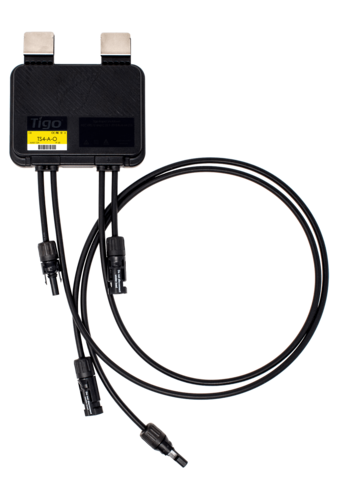
Solar Optimizers
Solar optimizers are similar to microinverters in that they are installed at the panel level, but they perform DC-to-DC conversion rather than DC-to-AC conversion. Solar optimizers optimize the power output of each solar panel by maximizing the voltage and current, which is then sent to a centralized string inverter for conversion to AC electricity.
Solar optimizers offer some of the benefits of microinverters, such as panel-level monitoring and partial shading mitigation, while retaining the cost-effectiveness of string inverters.
Efficiency
Solar optimizers optimize the power output of each solar panel, enhancing system efficiency, particularly in installations with shading or uneven panel performance, offering significant improvements to overall system efficiency.
Cost
Solar optimizers add incremental cost to the system but, because they improve overall system performance and energy yield, the return on investment period can be very short.
Reliability & Durability
Solar optimizers provide enhanced reliability and performance by optimizing power output at individual panel level, mitigating not only the impact of shading, but also reducing the strain on each panel, leading to a longer lifespan for the entire system.
Monitoring
Solar optimizers provide panel-level monitoring and optimization, offering real-time data on panel performance and system health for improved system management and maintenance.
Flexibility & Compatibility
Solar optimizers are compatible with both standard string inverters and hybrid inverters, enhancing system flexibility and performance without requiring micro-inverters or any other specialist equipment.

